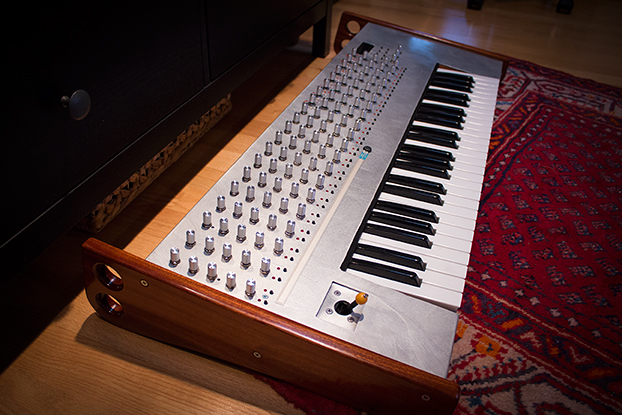Also gtk+-3.8 has been released the 2013-03-25 23:32 and glibc 2.17 the 25-Dec-2012 16:06 which is not a few months ago.
Then the statement that old software is more stable is not always true. I hope that you've upgrade openssl since heartbleed
Code: Select all
ldd --version
ldd (Ubuntu EGLIBC 2.15-0ubuntu10.7) 2.15We need more of these types of controllers!! There's a market for it, at least here at KVR!quixotic wrote:You asked for it

Linux musicians sometimes havefalkTX wrote: People that make music usually prefer to have a stable, reliable system instead of the new thing that is out just a few months ago.
To be clear, which distros do you consider standard these days ? Certainly Ubuntu will come to mind, likely also Fedora and Debian. Any others you consider at that level ?samplemania wrote:No offense to Linux Pros around here, but the plugins should run on standard distros.
All good valid points. However, it bears repeating that Ubuntu is not the only easy-to-install-and-maintain system. Also, Mint is another face on Ubuntu. If u-he wants to limit development to a few distros I suggest Ubuntu and something-else-not-Ubuntu.There is no way that U-HE could supply all possible distros and custom installs.
The should concentrate on Ubuntu and maybe Mint.
I know there are other great distros but a non-IT person should be able to install the system.
Standard distro designers have the freedom to include and configuresamplemania wrote:No offense to Linux Pros around here, but the plugins should run on standard distros.
There is no way that U-HE could supply all possible distros and custom installs.
The should concentrate on Ubuntu and maybe Mint.
I know there are other great distros but a non-IT person should be able to install the system.
Take Steam, as an example, of why this isn't always true of commercial software. To begin with, Valve only supported the Ubuntu distro. The Debian folk had to jump a few hoops to get things to work on their own Distro. They quite easily overcame the library issues they were faced with, because they invariably know what they are doing. Now Steam can be installed on a range of distros, such as Arch, Gentoo, Fedora and OpenSUSE. I don't expect to see source from u-he either BTW (we can but dream though!).falkTX wrote:For opensource projects this is true. Not so much for commercial ones.virusav wrote:For people on Debian, they are likely capable of getting things to work on their own!
(I don't expect u-he to release source in any way)
...it is possible that building on older platforms means that the package doesn't run on newer platforms, due to incompatibilities also. So it isn't a one-stop-guarantee that this would be to everyone's advantage. Unreal 2k3 was ported over to Linux, and that relied on older libraries. Getting that to run on modern distros is neigh on impossible. That said, the problems with building the plugin on older systems would be minimal (for people trying to run it on newer systems), whereas the problems with building on newer systems are greater (for users trying to run the plugin on older systems)... so, I agree it might be worth some serious consideration.falkTX wrote:But that's the exactly the thing - they don't have to.virusav wrote:I think it's perfectly reasonable to expect the (very few) developers that are working on Linux builds, to only support the latest Ubuntu offerings. (...) RPM-based systems like Fedora might be worth considering, but we shouldn't expect u-he to support each and every distro, as there are simply too many, and this would overstretch them.
If builds are made in an older linux system (even with a newer toolchain) they will work for 99% of Linux users.
Building on newer linux distros will result in the reverse situation - the binaries will only work for distros similar to the ones they were built in.
Thanks! You are totally right, I looked forever for something with more than 32 knobs/sliders on it, and I just couldn't find anything. Even those I did, were plastic, most had a poor feel to the knobs, or cheap pots.briandc wrote: We need more of these types of controllers!! There's a market for it, at least here at KVR!
brian
Absolutely! I'm not the greatest musician (or DIY'er), but it's enjoyable to make stuff whether it's music - or controllersabique wrote:Crazy controller!!!! It must be totally awesome to play with a controller built by yourself
© KVR Audio, Inc. 2000-2024
Submit: News, Plugins, Hosts & Apps | Advertise @ KVR | Developer Account | About KVR / Contact Us | Privacy Statement